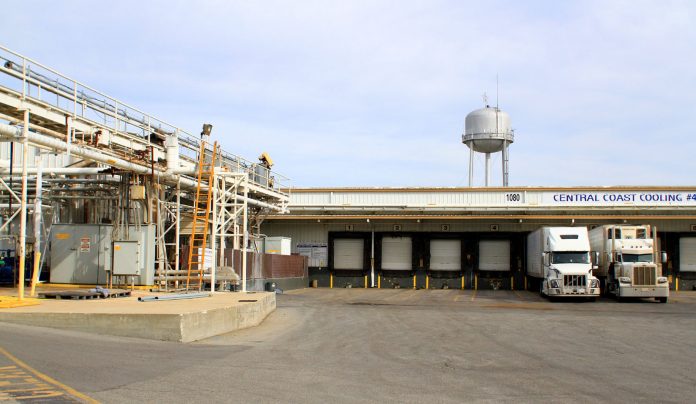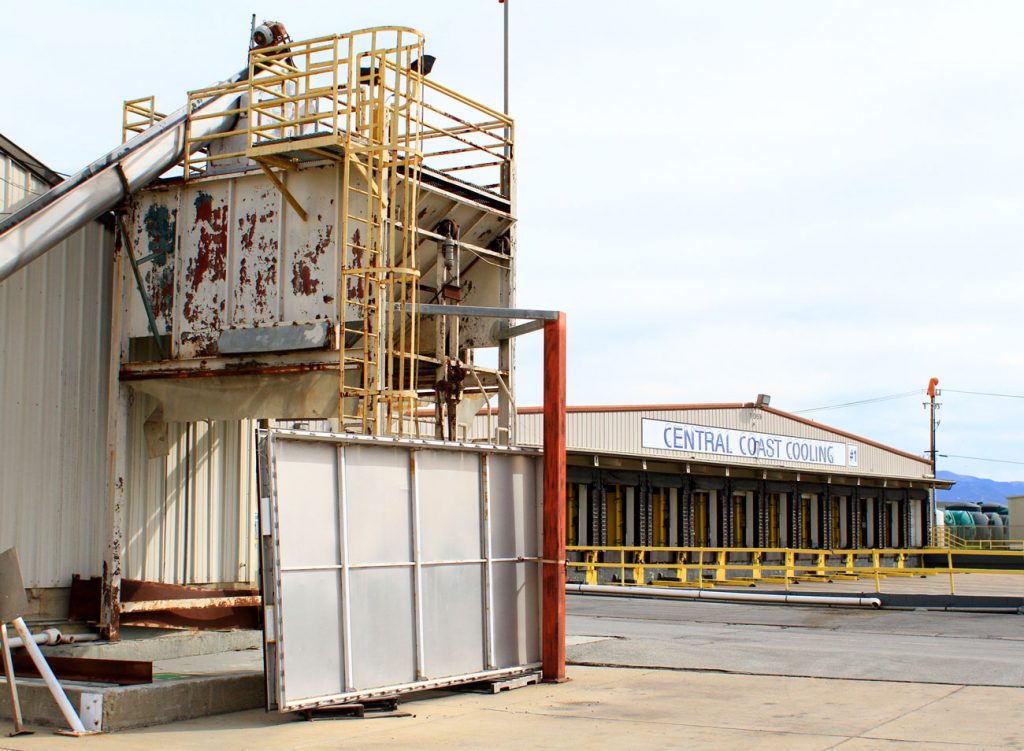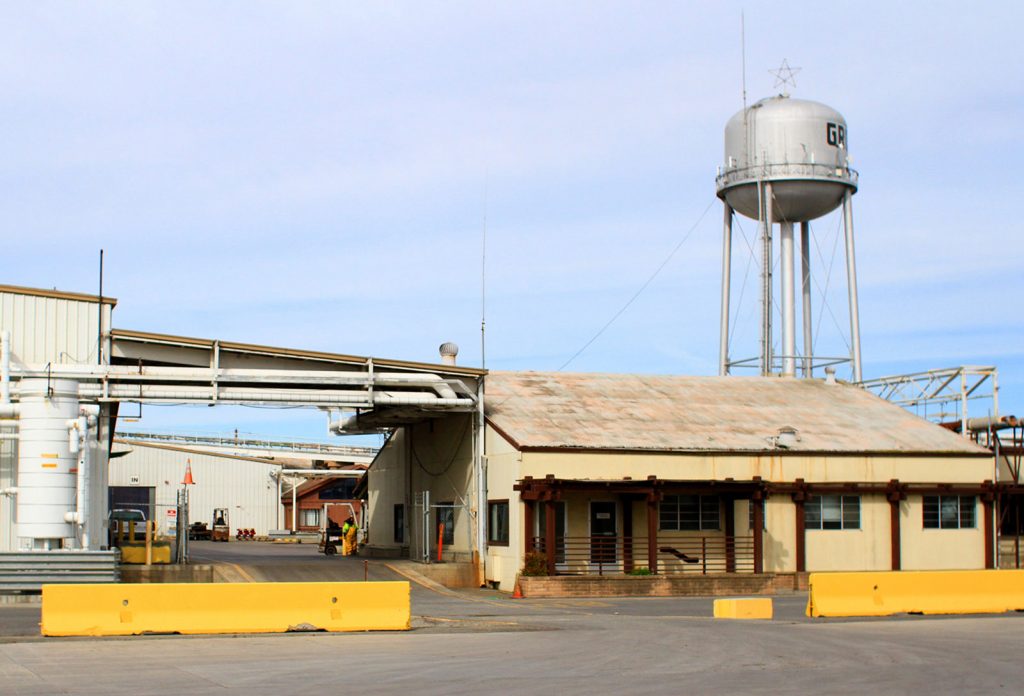
SALINAS VALLEY — A campus redevelopment project is underway in Salinas, which is aimed at improving agricultural technology in the Salinas Valley and advancing the nature of agriculture work.
The Growers Ice Co. lot, located at the corner of Merrill and Abbott streets, was originally built in 1936 and is currently used for pre-cooling and cold storage of agricultural goods before they are shipped to market.
The high-tech project will cost an estimated $168 million to renovate the 28-acre campus and enhance its abilities as a pre-cooling, processing and cold storage facility to serve the region.
“What we want to do on this new campus is futuristic,” said Jim White, CEO of Post Harvest Technologies and another dozen companies, all aligned with agriculture. “We’re doing things that haven’t been done before.”
White said another 100 agricultural jobs would result from the upgrade, as the new campus is planned to have three times the volume capability. Those jobs would be higher quality as well, relating more to the technology in use at the facility.
The current timeline estimates demolition of the existing buildings would begin in 2022. The goal would be to build the entire new facility, rather than going by phases. The finished site would have four coolers and a new office ready for operation in early 2024.
During the estimated 20 months of construction, White said other locations would be temporarily utilized for the cooling operations.

Produce from the field currently comes to the facility and is cooled, then stored in warehouses before shipment. Many of the buildings are open to the air, having been built decades ago when different technology and standards were in place.
The new designs will feature closed buildings and more automation. This will ensure the cold chain is not broken.
“It’s going to enhance the product quality, which is going to enhance the shelf life,” White said.
He noted the more that shelf life is extended, the more value produce has to a supermarket.
“Once the product comes through the campus, we put the product through the pre-cooling process, which is removing heat from the product, then we want that product to remain consistent in temperature,” White said. “At the old facility and other facilities around, it’s out in the open and it might not get to that temperature-controlled warehouse as fast as it should.”
He said the open buildings at the facility and others in the area do meet standards.
“Our food safety in Salinas Valley, even today, is superior, but we can always do better in maintaining the quality of the product,” White said.
By increasing the presence of technology, it increases both safety and value in the food, he explained.
Items going through the facility will also be subject by a more advance inventory system that can track and control product movement and retain information, such as where the item came from or where it is going when it leaves. The result will be a decreased chance for error in shipments.
White said someone could be sitting behind a screen and issuing commands to robots and forklifts regarding what products go where.
The shift toward technology will mean ag jobs also shift in their needed skills.
“I am a proponent of labor, but we’ve got to have higher-grade jobs, not just entry-level jobs,” White said.
Coordinating with area organizations, such as Rancho Cielo or Hartnell College, are longer term plans that White said could happen in the future.
“We can put some training programs together to get these people ready,” he said. “We got to start building our workforce.”
Because the nature of automation and technology is dependent on large amounts of energy, the facility will boast alternative energy in the form of solar, cogeneration and micro grids.
“That is going to require a higher level of worker to be able to run that,” White said about one area where agricultural work will become more advanced through technology.
He added that the goal isn’t just for the facility, but for the entire Salinas Valley region.
“We’re known as the ‘Salad Bowl of the World,’ but when you come here and look at our facilities, it doesn’t look like the ‘Salad Bowl of the World,’” White said. “I want this facility to be the beacon of the highest technology and the best facility built, and then I want our facility to be the catalyst to continue to upgrade other facilities in the Salinas Valley.”










